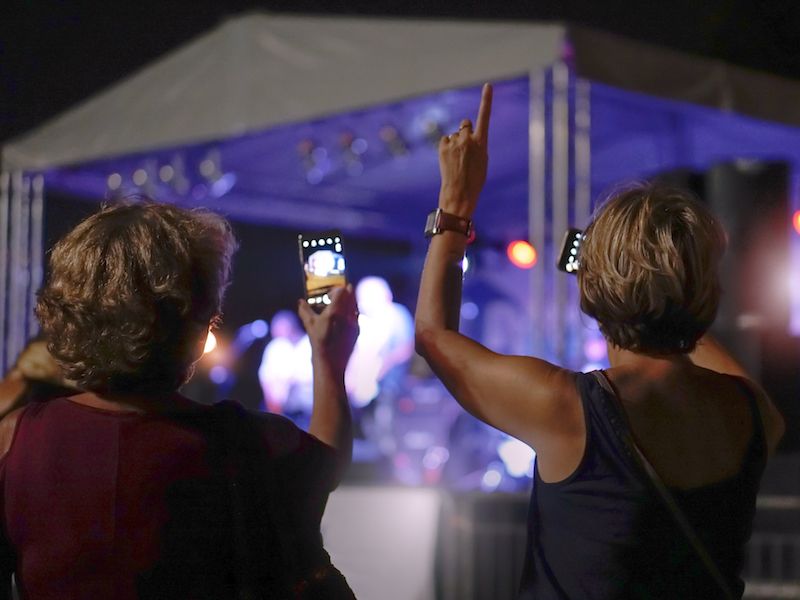
We’ve been getting excited about summer activities all year: trips to the beach, relaxing by the pool, and damaged hearing? That’s right, summer has a few hidden hazards to your ears, either from loud noises or the environmental scenarios you might find yourself in. Any sounds above 80 decibels can result in damage to your hearing, while swimming in pools or other bodies of water can lead to lasting hearing loss. You need to take precautions and be aware of your environment so that you can safeguard your hearing this summer. Read on to discover the summer’s six hidden hazards to your ears.
At Concerts, Wear Hearing Protection
Whether you’re at an indoor venue or an outside show venue you still need to use hearing protection during live music. 90 decibels is in the danger zone for ear injury and concerts reach this level even at outdoor venues. So regardless of whether you’re going to inside or outside concerts, it’s a practical plan to use earplugs. You can still hear the sounds with earplugs in it’s just dampened a little bit. If you’re going to a show with young children, think about getting them a heavy duty set of earmuffs because children have more vulnerable hearing than adults.
It’s More Than Just Loud at Fireworks
Honestly, there are a lot of reasons to avoid fireworks in the summer. It’s not only the 4th of July shows that are professional that can injure your ears, we mean the backyard fireworks that lead to hundreds of incidents throughout the summer. As well as causing hand injuries, blindness, and house fires, backyard fireworks can also cause significant harm to your ears since they are known to reach volume levels of 155 dB. This year, on the 4yh of July, appreciate the show from a distance and leave the fireworks to the pro’s.
Lawnmowers Can Bring About Hearing Loss
If you love to take care of your lawn, mower, edger, and trimer are your best friends. But have you ever noticed how off your ears feel after you finish, making everything sound muffled? That’s because the lawn tools, which are constantly loud, impact your hearing over time. If you’ve ever noticed landscapers, it is likely you have seen them wearing hearing protection, you should take a hint from them and wear earplugs or earmuffs next time you attend to your yard to make sure your ears don’t get injured.
Hears How to Protect Your Ears When You Take a Swim
Millions of people suffer from swimmer’s ear every summer, which occurs when bacteria-packed water becomes stuck inside your ear canal. Swelling and painful earaches result when the bacteria infects the ear. It’s not exclusively rivers and lakes that hold these bacteria, they can also be found in pools and hot tubs if they aren’t cleaned and treated properly. No irreversible injury should take place if you have your hearing checked out by a hearing professional. To be safe, when your swimming in your pool, use special swimmers earplugs and keep the chemical balance correct to decrease the likelihood of getting swimmers ear.
Boats and Other Water Sports
If you love the water, summertime is beach and boating time for you. But, jet ski and boat engines are often noisy,they can get up to more than 100 decibels. Long term hearing damage can happen after about 15 minutes of exposure to that kind of noise. In this situation also, wearing a set of throw away foam earplugs is a smart plan.
Car Races Can Harm Your Hearing
It doesn’t matter what kind of auto racing you like, motorcycle, midget, Formula 1, drag racing or stock cars. If you attend a lot of auto-races this year, they all present a risk. 120 dB is inside of the danger zone for hearing loss and many races go well above this. Earplugs are your best bet at these races, although your kids should definitely wear the earmuffs which were mentioned earlier. Otherwise, you may not be able to enjoy the sound of those engines as you get older.
